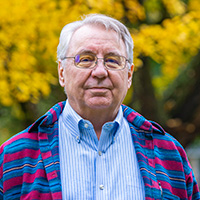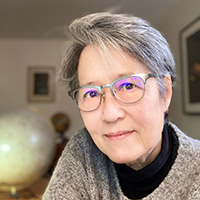Dan Brown ’86 is the author of numerous #1 bestselling novels, including The Da Vinci Code, which has become one of the best selling novels of all time as well as the subject of intellectual debate among readers and scholars. Brown’s novels are published in 56 languages around the world with over 200 million copies in print. The son of a mathematics teacher and a church organist, Brown was raised on a prep school campus where he developed a fascination with the paradoxical interplay between science and religion. These themes eventually formed the backdrop for his books. He is a graduate of Amherst College and Phillips Exeter Academy, where he later returned to teach English before focusing his attention full time to writing. Brown’s latest novel, Origin, explores two of the fundamental questions of humankind: Where do we come from? Where are we going?
Ilya Kaminsky was born in Odessa, in 1977, and arrived in the U.S. in 1993, when his family was granted asylum by the government. He is the author of Deaf Republic (Graywolf Press, 2019) and Dancing In Odessa (Tupelo Press, 2004) and co-editor and co-translator of many other books. His work was a finalist for the National Book Award and won the Los Angeles Times Book Award, the Anisfield-Wolf Book Award, the National Jewish Book Award, the Whiting Award, the American Academy of Arts and Letters’ Metcalf Award, and Poetry magazine’s Levinson Prize, and was also shortlisted for the National Book Critics Circle Award, Neustadt International Literature Prize, and T.S. Eliot Prize (UK). He is the recipient of a Guggenheim Fellowship, a Lannan Fellowship, an Academy of American Poets’ Fellowship, and an NEA Fellowship. He currently teaches in Princeton and lives in New Jersey.
Photo by Cybele Knowles
John McWhorter teaches linguistics at Columbia University, as well as Western Civilization and music history. He specializes in language change and language contact, and is the author of The Missing Spanish Creoles, Language Simplicity and Complexity, and The Creole Debate. He has written extensively on issues related to linguistics, race, and other topics for Time, The New York Times, CNN, the Wall Street Journal, The New Republic and elsewhere, and has been a Contributing Editor at The Atlantic. For the general public he is the author of The Power of Babel, Our Magnificent Bastard Tongue, The Language Hoax, Words on the Move, Talking Back, Talking Black and other books, including Nine Nasty Words and Woke Racism, both of which were New York Times bestsellers. He hosts the Lexicon Valley language podcast, has authored six audiovisual sets on language for the Great Courses company, and has written a weekly newsletter for the New York Times since August 2021.
Photo by Eileen Barroso
John Morse is the former President and Publisher of Merriam-Webster Incorporated. He joined Merriam-Webster in 1980, serving first as an assistant editor, then as Manager of Editorial Operations and Planning and later as Executive Editor responsible for product-development operations. He became President and Publisher in 1997 but remained actively involved in editorial activities, including the publication of the eleventh edition of Merriam-Webster’s Collegiate Dictionary and Merriam-Webster’s Advanced Learner’s English Dictionary. During his time as President, he oversaw Merriam-Webster’s transition from being a mostly print-oriented to being a mostly digital publisher.
Ruth Ozeki is a writer, filmmaker, and Zen Buddhist priest, whose novels have been translated and published in over thirty-five countries, garnering international critical acclaim for their ability to integrate issues of science, technology, religion, environmental politics and global pop culture into unique, hybrid, narrative forms. Her most recent novel, The Book of Form and Emptiness, won the 2022 Women’s Prize for Fiction and the Massachusetts Book Prize, among others. Her novel, A Tale for the Time Being won the LA Times Book Prize and was a finalist for the 2013 Booker Prize and the National Book Critics' Circle Award. Her nonfiction work includes a memoir, The Face: A Time Code, and the documentary film, Halving the Bones. A longtime Buddhist practitioner, Ruth was ordained as a priest in 2010 and is affiliated with the Brooklyn Zen Center and the Everyday Zen Foundation. She is Professor Emerita of English Language & Literature at Smith College, where she was the Grace Jarcho Ross 1933 Professor of Humanities. She is currently the Margaret Bundy Scott Distinguished Visiting Professor at Williams College.
This event is made possible by the Seminars on Opposing Views Fund, established by members of the Class of 1970, with continuing support from individual alumni and parents. Sponsored by the Office of the Provost and Restless Books.











